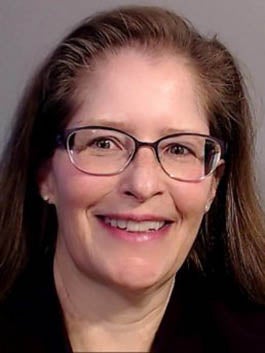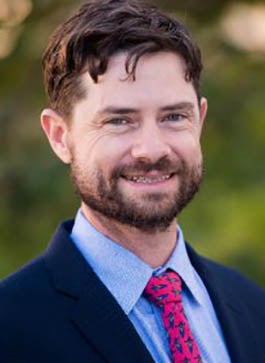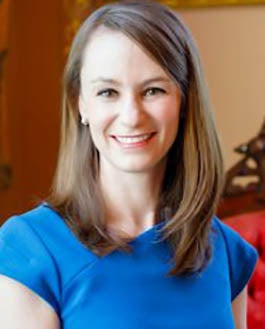The LBJ School of Public Affairs welcomed three distinguished new faculty appointments during the 2020–21 academic year: Dr. Bianca Adair, Resident Intelligence Officer, specializing in intelligence and national security; Dr. Patrick Bixler, an assistant professor focusing on environmental resources, urban policy and sustainability science; and Dr. Sheena Chestnut Greitens, an associate professor whose expertise is East Asia, authoritarian politics and American national security policy.
The exchange below with Sheena Chestnut Greitens is the second of three conversations with these new professors on their fall 2020 semester.

Dr. Bianca Adair, an officer in the Directorate of Operations at the Central Intelligence Agency, is the Resident Intelligence Officer at the LBJ School from fall 2020 to fall 2022. She has more than 16 years of federal government service in leadership positions in Washington, DC, and foreign field posts. In her nine years at the CIA, Adair has worked in the Middle East, Europe and North Africa on security, counterterrorism and foreign policy, with a special focus on Iran. Previously, she served in Iraq and the United Arab Emirates as a foreign service officer in the U.S. Department of State. The recipient of a Fulbright Research Grant on Austrian-Hungarian Relations and conversant in Persian (Farsi), French, Tajiki, German and Hungarian, Adair holds a Ph.D. in political science from The University of Alabama. She teaches courses on "Intelligence and National Security" as well as "Thinking, Writing, and Briefing for Intelligence."

Dr. Patrick Bixler is a tenure-track assistant professor at The University of Texas at Austin, with the LBJ School serving as his academic home. This interdisciplinary appointment will contribute to the work of Planet Texas 2050, including collaboration with Community and Regional Planning in the School of Architecture and the RGK Center for Philanthropy and Community Service in the LBJ School. Bixler's fields of interest include environmental and natural resources, urban policy and governance, nonprofit and philanthropic studies, network science and sustainability science. He has previously worked for the Texas A&M University Institute for Renewable Natural Resources and Department of Wildlife and Fisheries Science, the University of Oregon Institute for a Sustainable Environment and Environmental Studies, and the Pinchot Institute for Conservation in Washington, DC.

Dr. Sheena Chestnut Greitens, is an associate professor at the LBJ School with additional roles as a faculty fellow with the Clements Center for National Security and a distinguished scholar with the Strauss Center for International Security and Law. Her position is supported through a Chair established jointly by the Clements Center and the Strauss Center. Greitens's work focuses on East Asia, authoritarian politics and American national security policy, and she serves as a non-resident senior fellow at the Brookings Institution, an adjunct fellow with the Korea Chair at the Center for Strategic and International Studies, an associate in research at the Fairbank Center for Chinese Studies at Harvard University, and a member of the Digital Freedom Forum at the Center for a New American Security.
Q: What have you been teaching this fall?
Greitens: This semester I taught "Chinese Politics and Foreign Policy," a course that's designed to introduce students to how the Chinese political system works, and how it impacts the world. It's a fun class to teach because there's so much to talk about! That's always true in teaching China courses, but it feels especially relevant this semester with everything going on in U.S.-China relations.
Q: What has it been like to adapt to teaching online? How have you and your students adjusted?
Greitens: Honestly, starting to teach in a new place remotely was a little strange — it probably took us all a little longer than usual to establish our conversation rhythm and class dynamic. But I've been really impressed that the students have stayed active and engaged in every single class this semester. There's a wide range of backgrounds and interests, and the students genuinely seem to enjoy talking to and learning from each other. It's been nice to see that happen, even if we're not all in a classroom together!
Q: What are you looking forward to next semester?
Greitens: Next semester I'm teaching a course called "Democracy and Dictatorship," which looks at how democratization happens, how dictatorship works, and how regime type affects global politics. I've taught it before as a standard political science course, and am looking forward to adapting it this spring to focus more on policy questions.
I'm also teaching the required writing course; I care a lot about good writing and do believe it's a critical skill for people who want to be effective in the policy world, so I'm looking forward to that.

